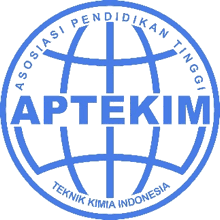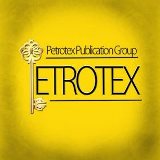Development of Microbial Fuel Cell in Tofu Liquid Waste in Producing Clean Energy
Abstract
The high need of Indonesian people for electrical energy has led to an increase in energy demand. This has triggered research efforts based on renewable technologies that are efficient and environmentally friendly. One of the renewable energy sources that is widely developed is Microbial Fuel Cell (MFC). MFC works by utilizing organic matter used by microbes as an energy source in carrying out metabolic activities. This study aims to determine the effect of Bacillus subtilis and Escherichia coli bacteria with different concentrations of 10% (v/v) and 15% (v/v) on the electrical energy generated from the tofu liquid waste substrate and observe changes in pH and Biological Oxygen Demand (BOD) in the MFC system. This research method consists of several steps, namely the preparation of electrolysis equipment, electrodes, substrates, bacterial cultures, electrolytes and MFC processes. The maximum value of voltage and current in Bacillus subtilis bacteria occurred at the 10 hours with 15% (v/v) bacterial concentration which amounted to 394 mV and 10.6 mA with a bacterial population of 16.15 × 109 CFU/mL and a power density value of 126.67 × 10-4 watt/m2. Furthermore, the maximum value for Escherichia coli bacteria occurred at the 10 hours with a voltage and current of 266 mV and 5.3 mA with a bacterial population of 15.60 × 109 CFU/mL and a power density value of 55.67 × 10-4 watts/m2. The pH value of the substrate variations with the addition of Bacillus subtilis bacteria ranged from 5-6, while with the addition of Escherichia coli bacteria variations ranged from 4-5. This system also reduces the value of biological oxygen demand.
Keywords
Full Text:
PDFReferences
Asrib, A. R., Abduh, M. N., Dirawan, G. D. 2016. Environmental sustainability: the case of the Sultan Hasanuddin International Airport, Makassar, South Sulawesi. World Transactions on Engineering and Technology Education. 14(3): 431-437.
Ayuningtyas, A., Ellyza, N. 2017. Pemanfaatan Bakteri Eschericia coli dan Shewanella oneidensis dalam Limbah Organik pada Produksi Listrik dengan Microbial Fuel Cell (MFC). Institut Teknologi Sepuluh Nopember.
Bouallagui, H., Touhami, Y., Cheikh, R. B., Hamdi, M. 2005. Bioreactor performance in anaerobic digestion of fruit and vegetable wastes. Process biochemistry. 40(3-4): 989-995.
Lee, S. W., Jeon, B. Y., Park, D. H. 2010. Effect of bacterial cell size on electricity generation in a single-compartmented microbial fuel cell. Biotechnology letters. 32(4): 483-487.
Li, F., Sharma, Y., Lei, Y., Li, B., Zhou, Q. 2010. Microbial fuel cells: the effects of configurations, electrolyte solutions, and electrode materials on power generation. Applied biochemistry and biotechnology. 160: 168-181.
Prayogo, F. A., Suprihadi, A., Raharjo, B. 2017. Microbial Fuel Cell (MFC) Menggunakan Bakteri Bacillus Subtilis dengan Substrat Limbah Septic Tank Serta Pengaruhnya Terhadap Kualitas Limbah. Jurnal Akademika Biologi. 6(2): 17-25.
Prihantoro, F. A., Zulaika, E. 2015. Viabilitas Bacillus terhadap Methylene Blue yang Berpotensi untuk Microbial Fuel Cell (MFC). Jurnal Sains dan Seni ITS. 4(1): 1-4.
Putri, A. N., Fatimah, S. 2021. Karakteristik Nata De Soya Dari Limbah Cair Tahu dengan Pengaruh Penambahan Ekstrak Jeruk Nipis dan Gula. Indonesian Journal of Chemical Analysis. 4(2): 47-57.
Rabaey, K., Lissens, G., Siciliano, S. D., Verstraete, W. 2003. A microbial fuel cell capable of converting glucose to electricity at high rate and efficiency. Biotechnology letters. 25: 1531-1535.
Romayanto, M. E. W., Wiryanto, S. 2006Pengolahan limbah domestik dengan aerasi dan penambahan bakteri Pseudomonas putida. Bioteknologi. 3(2): 42-49.
Syafaati, A. D. 2015. Potensi Perolehan Energi Listrik Dalam Proses Pengolahan Limbah Cair Tahu Melalui Sistem Stack Microbial Fuel Cell (MFC) Menggunakan Isolat Bakteri Limbah Cair Tahu. UIN Sunan Kalijaga Yogyakarta.
Utami, L., Lazulva, L., Yenti, E. 2018. Produksi Energi Listrik dari Limbah Kulit Pepaya (Carica papaya) Menggunakan Teknologi Microbial Fuel Cells. Al-Kimia. 6(1): 56-62.
Yoganathan, K., Ganesh, P. 2015. Electrogenicity assessment of Bacillus subtilis and Bacillus megaterium using microbial fuel cell technology. International Journal of Applied Research. 1(13): 435-438.
Refbacks
- There are currently no refbacks.




